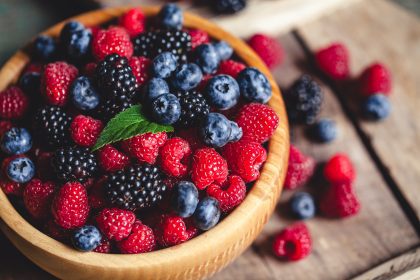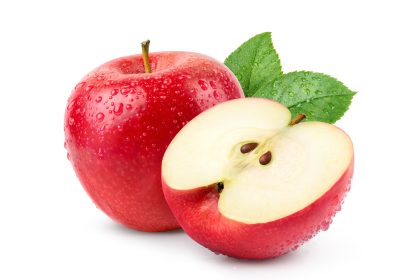In today’s information-rich environment, understanding the complex relationship between diet, aging, and overall health has become increasingly challenging yet crucial. Recent scientific studies have unveiled surprising connections between our dietary choices and biological aging, while also highlighting the importance of navigating health information with discernment and critical thinking.
The profound connection between diet and aging
Recent research has revealed a startling connection between dietary quality and biological aging, with implications that extend far beyond traditional understanding. The study demonstrates that diets high in processed foods, particularly fast food and sugary beverages, can accelerate the aging process even in young adults. This finding challenges previous assumptions that aging-related dietary concerns primarily affect older populations.
Particularly concerning is the discovery that diets containing more than 14% of total calories from ultra-processed foods correlate with accelerated biological aging, as evidenced by various blood biomarkers. This revelation suggests that the foods we consume may have more immediate and profound effects on our aging process than previously understood.
Understanding cellular aging mechanisms
The relationship between nutrition and aging extends to the cellular level, where recent studies have unveiled fascinating insights into how our dietary choices influence fundamental biological processes. Research focusing on mitochondria, the cellular powerhouses, has revealed their role as reservoirs for NAD, a crucial molecule for energy production and cellular health.
A groundbreaking study demonstrated that participants who incorporated omega-3 supplements into their daily routine for three years experienced a remarkable slowdown in biological aging, equivalent to three to four months. This effect was further enhanced when combined with regular exercise, highlighting the synergistic relationship between nutrition and physical activity in promoting cellular health.
The truth about juice cleanses
While juice cleanses have gained popularity as a quick fix for health and weight management, recent scientific investigation raises significant concerns about their impact on gut health. A comprehensive study revealed that even a brief three-day juice cleanse can dramatically alter the gut microbiome, leading to an increase in inflammatory bacteria and a decrease in beneficial bacterial populations.
These changes in gut bacteria composition could have far-reaching implications for overall health, as the gut microbiome plays a crucial role in various bodily functions, from immune response to mental health. Registered Dietitian Megan Mehnert emphasizes that juice cleanses often fail to provide adequate nutrition and may lead to energy deficits that could compromise health rather than enhance it.
Critical evaluation of health trends
The current landscape of health information requires careful navigation and critical thinking. Popular health trends, including juice cleanses, often come wrapped in compelling marketing messages that may not align with scientific evidence. The recent study on juice cleanses, while illuminating, had limitations including small sample size and short duration, highlighting the importance of considering research methodology when evaluating health claims.
Combating health misinformation
In an era where federal health agencies’ public communications face increasing scrutiny, the ability to distinguish reliable health information from misinformation becomes paramount. Dr. Dawn Holford from the University of Bristol advocates for lateral reading, a practice that involves verifying information across multiple credible sources before accepting health claims as fact.
The role of emotional intelligence in health communication
Empathetic refutation has emerged as a valuable tool in addressing health misinformation. This approach combines factual correction with emotional intelligence, acknowledging that people’s health beliefs often carry deep personal significance. By engaging with different viewpoints respectfully while maintaining scientific accuracy, we can foster more productive discussions about health and nutrition.
The impact of processed foods
Recent studies have highlighted the significant impact of ultra-processed foods on biological aging. These findings suggest that the convenience of processed foods may come at a considerable cost to our health, affecting not just our current well-being but potentially accelerating the aging process at a cellular level.
The importance of whole foods
Research consistently demonstrates the benefits of whole foods in supporting healthy aging. Fresh fruits, vegetables, lean proteins, and whole grains provide essential nutrients that support cellular health and may help slow the aging process. The complex interplay of nutrients found in whole foods appears to offer benefits that cannot be replicated through supplements or processed alternatives.
Exercise and dietary synergy
The relationship between diet and exercise in promoting healthy aging has emerged as a crucial area of study. Research indicates that the benefits of proper nutrition are amplified when combined with regular physical activity, suggesting that a holistic approach to health yields the best results for healthy aging.
Understanding supplement efficacy
While some supplements, such as omega-3s, show promise in supporting healthy aging, the research emphasizes the importance of obtaining nutrients primarily through whole foods. Supplements should complement, not replace, a balanced diet rich in natural, unprocessed foods.
The role of stress and lifestyle factors
Recent studies also highlight the interaction between diet, stress, and aging. High stress levels combined with poor dietary choices may accelerate biological aging, while stress management techniques alongside healthy eating habits may help maintain cellular health.
Future research directions
Ongoing research continues to uncover new connections between diet and aging. Scientists are particularly interested in understanding how different dietary patterns affect cellular aging markers and how these effects might be modified by individual genetic factors.
Practical applications
Translating research findings into practical dietary guidelines remains a crucial challenge. Healthcare providers and nutritionists work to develop evidence-based recommendations that balance scientific knowledge with real-world applicability.
In conclusion, the relationship between diet, aging, and health proves more complex than previously understood. While recent research provides valuable insights into how our food choices affect biological aging, it also emphasizes the importance of approaching health information with critical thinking and discernment. By understanding these connections and making informed choices about our diet and lifestyle, we can work toward optimizing our health and potentially slowing the aging process. However, this requires careful navigation of health information and a commitment to evidence-based practices rather than following trending health fads.
















